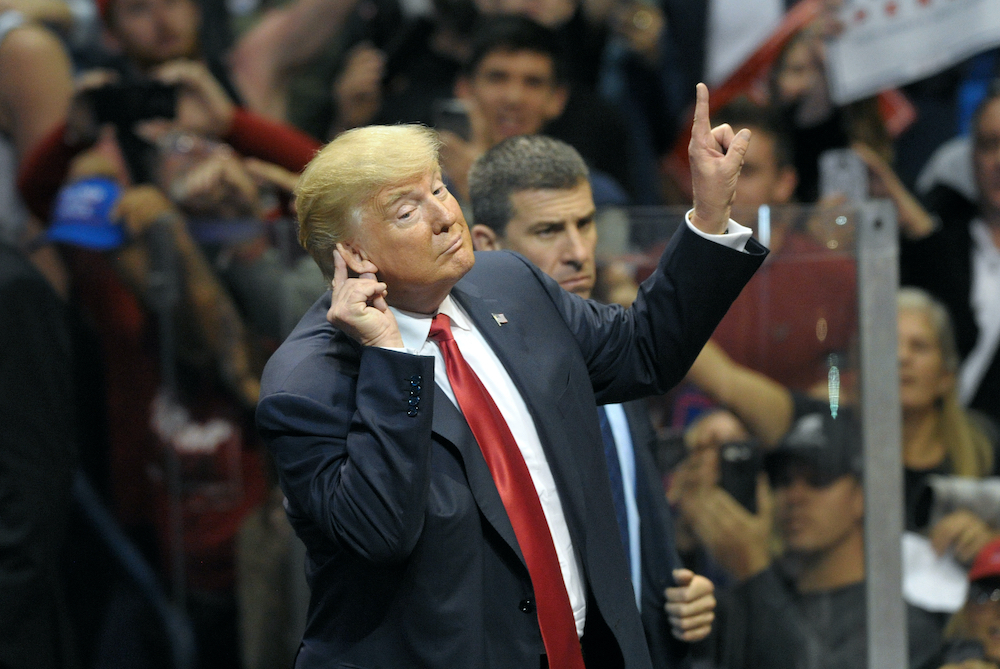ImpactAlpha, Sept. 24 – Please don’t call it pro-business. The operating environment created by the Trump administration is at odds with the growing recognition in business and finance that sustainability, inclusion and stakeholder accountability are necessary ingredients of long-term prosperity.
The confusion extends to market analysts and even business journalists, some of whose post-mortems on Ruth Bader Ginsburg’s legacy fell into the category error that pits inclusion and sustainability as antagonistic to business.
The champion of women’s full participation in the economy was called the Supreme Court’s “least pro-business justice,” in Quartz this week, even though the pro-business advantages of women’s leadership and greater participation in the economy are by now conventional wisdom.
Pro-business is urgent action to mitigate the climate emergency. Pro-business is crushing the pandemic, not hoping it goes away. Pro-business is eliminating systemic bias in lending and hiring. Pro-business is free, fair elections and the peaceful transfer of power.
The confusion was on display this week as the Securities and Exchange Commission forged ahead with a rule that will make it harder for shareholders to file resolutions, upending 40 years of usually constructive dialogue between investors and companies that serve to alert management to emerging risks. The rule, approved on a 3-2 vote, will “crush shareholder voices” and “increase material risk to corporations,” warned As You Sow. The rule will block shareholders from submitting proposals similar to this year’s resolutions requiring independent board chairs.
“Many proposals related to the COVID-19 pandemic and climate risk will no longer make the ballot,” Commissioner Caroline Crenshaw noted in her dissent.
It’s the latest in a series of moves from the S.E.C. to the Department of Labor that have sought to undermine environmental, social and governance, or ESG, investing, even as investor capital continues to flow to such funds.
“All of this is based on a political viewpoint that ESG factors have nothing to do with long-term value,” Josh Zinner of the Interfaith Center for Corporate Responsibility told ImpactAlpha, “when it’s a given across the investor and business communities that mitigating environmental and social risk and good governance are fundamental to long term sustainability.”
The confusion over businesses’ long-term interests extends to key environmental, labor and financial regulations that have been gutted by the Trump Administration, Zinner says.
“That hard ideological view that the Chamber of Commerce pushes and that has been taken up by this administration – that’s the definition of short-termism,” he says. “It will in the long run be problematic for companies and against the public interest.”
Pro-business protests
Racial justice activists are pro-business as well, forcing a needed re-evaluation of the systemic risk of injustice and income and wealth inequality.
With a grand jury in Kentucky failing to bring charges against police for the killing of Breonna Taylor, it’s worth remembering that cities that treat their residents fairly have longer, stronger fiscal outcomes, according to Activest’s Ryan Bowers. Likewise, forward-leaning executives are understanding systemic racism and injustice causes the misallocation of resources.
Racism and discriminatory practices in education, housing and access to business loans and other areas have cost the economy $16 trillion since 2000, Citigroup says in a new study. Closing racial gaps in wages, access to housing credit and higher education, and providing equitable lending to Black entrepreneurs could add $5 trillion to U.S. GDP over the next five years, the bank found.
After a backlash, Wells Fargo’s Charles Scharf walked back his comments about having a “very limited pool of black talent to recruit from.” Last month, Wells Fargo paid $7.8 million to settle Labor Department allegations of hiring discrimation against women and Black workers at bank locations across the country.
“Perhaps it’s the CEO of Wells Fargo who lacks the talent to recruit Black workers,” tweeted Rep. Alexandria Ocasio-Cortez.
This morning, Connecticut Treasurer Shawn Wooden, with the Ford Foundation, will announce a coalition of corporations pledging to advance racial equity within and outside their companies. Solving for bias is gaining traction among some of the world’s biggest money managers as a way to improve returns and deliver on their duties as fiduciaries. If racism is a systemic risk, overcoming its legacy and investing in justice and equality are financial and business opportunities.
Likewise sexism. There would be no possibility of realizing “gender alpha” without legal underpinnings constructed by Justice Ginsburg, including the right to sign a mortgage without a man, the right to have a bank account without a male co-signer, the right to have a job without being discriminated based on gender and the right for women to be pregnant and have kids and work.
Climate risk
California Gov. Gavin Newsom’s order to require all new cars sold in the state to be zero-emission by 2035 will no doubt be attacked as anti-business. But carmakers forced to accelerate their shift to emission-free mobility may one day thank the governor, especially if they want to keep up with Elon Musk. Recall that a half-dozen automakers opposed the Trump administration’s efforts to roll back fuel economy standards.
Trump’s own regulators are making the case that climate action is pro-business. The Trump-appointed Commodities Futures Trade Commission sounded the alarm earlier this month about the risks climate change poses to the U.S. financial system, drawing on analysis from Morgan Stanley, S&P Global, BP and Cargill, among others. Among the sweeping recommendations was an economy-wide price on carbon.
Some authors of the report told the New York Times that if Mr. Trump is re-elected, he’s all but certain to ignore the recommendations.
“Which is to say financial analysts from some of the world’s most powerful corporations apparently see the reelection of a Republican president as a threat to the long-term stability of global capitalism,” Eric Levitz writes in New York magazine.
Six months into the COVID crisis the number of permanent small business closures continues to rise. Tens of millions remain out of work. More than 200,000 people are dead. The pandemic continues to spread, unchecked by a president that couldn’t be bothered.
Call the Trump administration what you will. Just don’t call it pro-business.












